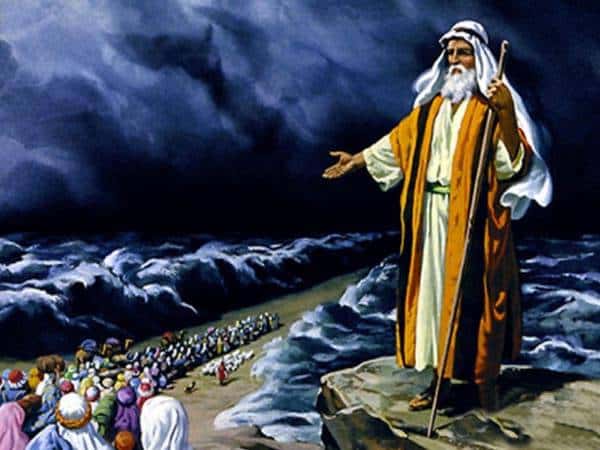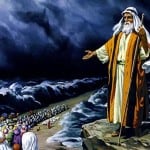It is the Jewish understanding that the Exodus from Egypt would be the prototype of the ultimate redemption. “What was” becomes the picture of “what will be”. In the words of the Ramban, “Maaseh Avot Siman LeBanim” (Ramban ; Genesis 12:6), the actions of the forefathers become signposts for their children in their own journey.
As the people of Israel, in our days ,are facing some of the same threats and oppressive spirits that our forefathers experienced, it would be important to glean the lessons from the Exodus experience. As the people of Israel today are quickly entering into their own process of redemption it would be helpful to see what can be learned from the “approach to” and “the crossing” of the Red Sea.
We read four important verses regarding that crossing.
It came to pass ( VaYehi ) when Pharaoh let the people go, that G-d did not lead them [by] way of the land of the Philistines for it was near, because G-d said, Lest the people reconsider when they see war and return to Egypt (Exodus 13:17).
Then we read as the Egyptians come very dangerously close to the fleeing Israelites the following:
And Moshe said unto the people: Fear ye not, stand still, and see the salvation of HaShem, which He will work for you today; for whereas ye have seen the Egyptians today, ye shall see them again no more forever. HaShem will fight for you, and you shall hold your peace.” (Exodus14:13-14) .
Yet we immediately see that HaShem wanted and expected more from them: “And HaShem said unto Moshe: Why are you crying out to Me? Speak unto the children of Israel that they go forward.” ( ibid 14:15).
This is then followed by the following interesting event.
And Moshe stretched out his hand over the sea; and Hashem caused the sea to go back by a strong east wind all the night, and made the sea dry land, and the waters were divided. And the children of Israel went into the midst of the sea upon the dry ground; and the waters were a wall unto them on their right hand, and on their left. (ibid 14:21-22) That is to say, the Israelites then waited the whole night before the sea split.
Finally we are also made aware of the fact that “But G-d led the people about, by the way of the wilderness by the Red Sea; and the children of Israel went up armed out of the land of Egypt. ‘((ibid 13:18) . G-d, it seems, turned them around when they left Egypt so that they would have to cross the sea. What was the purpose of that?
Let us begin with words “G-d did not lead them [by] way of the land of the Philistines for it was near” one wonders which place where they too near to? It wasn’t Egypt, since in fact they subsequently move closer to Egypt. Rather it was the land of Israel that was too close. The people of Israel needed to experience the longer voyage to get to the Promised land in order to discover their own strengths and faith.
On the words “Why are you crying out to Me? Speak unto the children of Israel that they go forward.” ( ibid 14:15), we understand that G-d expects us all in our corporate and personal walks to take a step forward in faith, regardless of the obstacles. Only when we take that step into our destiny do “the seas split open”.
From the words “and Hashem caused the sea to go back by a strong east wind all the night,”( ibid 14:21) we are to understand that redemption comes in G-d’s timing and not on ours. The people of Israel had to , and we today need to develop the patience to see redemption develop at its own pace.
Finally “But G-d led the people about, by the way of the wilderness by the Red Sea;” raises the question why they needed to return, to specifically cross the sea. The Lubavitcher Rebbe explains that the Zohar describes two concurrent realities in our lives .The first is Alma De-itgalya (the World of the Revealed) represented by the dry land and the Alma De-itcasya ( the World of the Hidden ) represented by the sea. The people of Israel needed to learn a very important lesson in their spiritual walk. They could not fall into the trap of believing that all there was in life is what was easily perceived and revealed. There is yet another reality hidden under the sea.” And the children of Israel went into the midst of the sea upon the dry ground”.
That lesson would be critical in their walk into redemption and destiny. At times the harsh reality of what we see around us can lead us into despair and disillusionment. Yet we cannot forget that there is whole other reality hidden under the sea of perceptions and lies. Redemption necessitates the ability to look for that spiritual subtext in the reality we walk in.
The people of Israel needed to remember those lessons then, in order to facilitate their journey into redemption. We need to remember them now.

